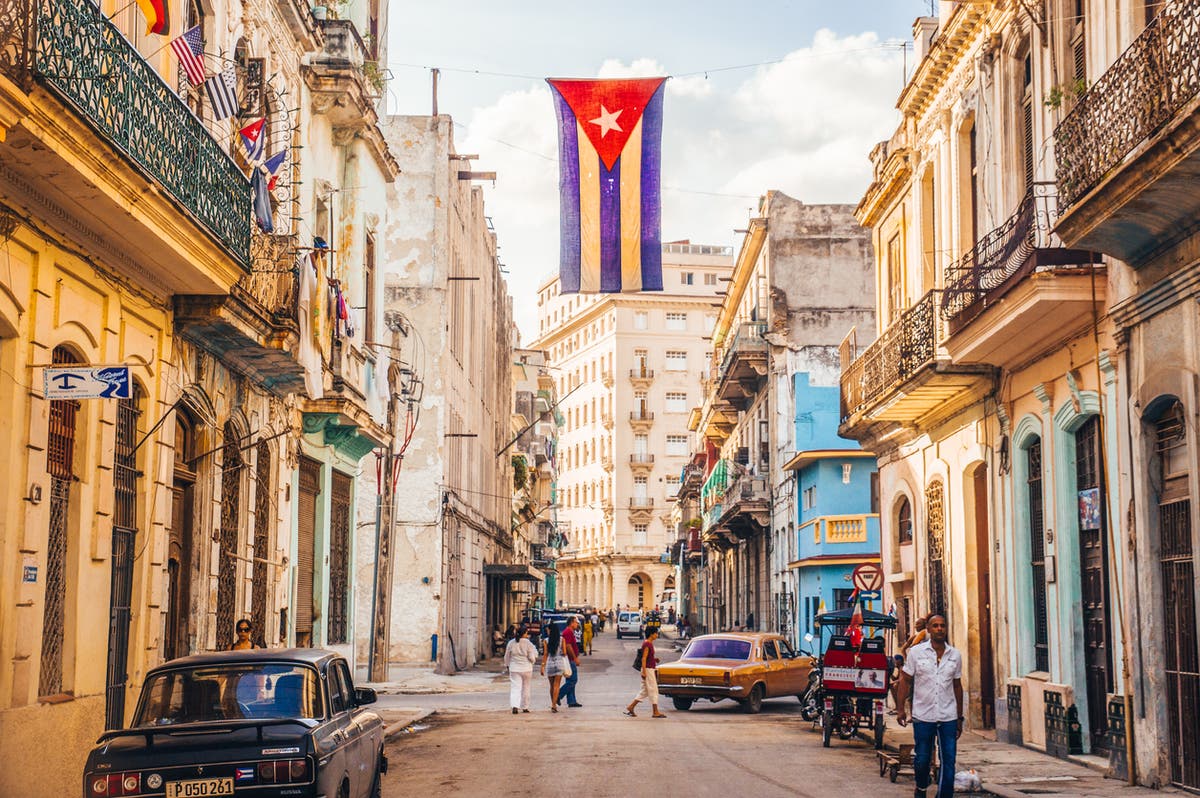This website uses cookies so that we can provide you with the best user experience possible. Cookie information is stored in your browser and performs functions such as recognising you when you return to our website and helping our team to understand which sections of the website you find most interesting and useful.

To the immense relief of tens of thousands of prospective British visitors to the US, Washington DC has quietly U-turned on a punitive sanction against people who have been to Cuba in the decade up to 2021.
In one of his last acts as president, Donald Trump added Cuba to Washington’s list of “state sponsors of terrorism” (SST) just before leaving the White House.
The effect is to prevent people who have been to the island from using the swift and easy online permit known as Esta. Instead, British travellers must apply in person in London or Belfast for a visa, at a cost of $160 (£130).
The US move was designed to hit Cuba’s tourism industry and deter future visits to the island. But it also has the effect of punishing people who have visited Cuba in the past.
For months, the US State Department insisted that the Esta ban was backdated to 1 March 2011.
But overnight US Customs and Border Protection (CBP) has been telling UK travellers that the relevant date is now the so-called “designation date” of 12 January 2021.
That position has now been confirmed in multiple emails sent by CBP – many of them in response to enquiries from months ago.
Mark Bailey, who produces the Yorkshire Lad TV series on YouTube, is planning a cruise to Alaska in August 2023 with his wife. They visited Cuba in 2014.
Mr Bailey originally asked the US authorities in October 2022 if he would need a visa. He was given a non-committal response from the CBP, and asked for confirmation of the relevant date.
He heard nothing until the evening of 31 January, when he received an email out of the blue from the CBP Traveler Communications Center reading: “If you travelled to Cuba prior to January 12, 2021, you remain eligible to apply for Esta.
“If you have travelled to Cuba since that date, please contact a US embassy or consulate to apply for a visa if you still wish to travel to the United States.”
Previously the US State Department had insisted to The Independent: “Any visit to an SST on or after March 1, 2011, even if the country was designated yesterday, renders the applicant ineligible for Esta.”
There had been some evidence that frontier staff were turning a blind eye to people who had been to Cuba before the so-called designation date.
But some passengers had been turned away from airports because they were regarded by airlines as inadmissible to the US.
The policy of backdating to 2011 has now officially been scrapped.
Mr Bailey said: “This has just made my bloody day. Saving hundreds of pounds of visa fees, travel down from Yorkshire to London, hotel accommodation and no guarantee that a visa would have been issued.”
The Independent has seen other emails from CBP to British travellers that corroborate the new policy.
Many UK visitors circumvented the rule by “laundering” evidence of a visit to Cuba – simply obtaining a new, clean passport.
If there is no Cuban stamp in a passport, the only way the US would know if a traveller had been to the island is if they had used a direct flight between the two countries – which British visitors to Cuba rarely do.
The government in Havana will not share details of overseas tourists with the US.



 Africana55 Radio
Africana55 Radio 
